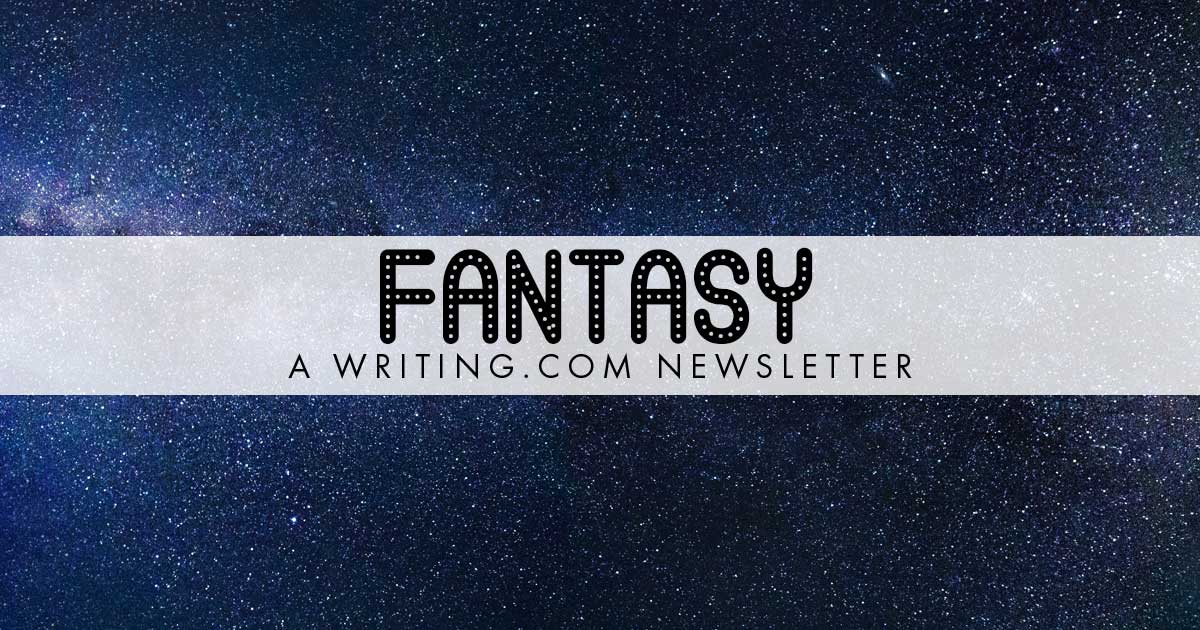This week: Giant Monsters Edited by: Robert Waltz  
More Newsletters By This Editor 
![Table of Contents [#401437]
Table of Contents](https://shop.Writing.Com/main/trans.gif) ![Table of Contents [#401437]
Table of Contents Table of Contents](/main/images/action/display/ver/1709303267/item_id/401437.png)
1. About this Newsletter
2. A Word from our Sponsor
3. Letter from the Editor
4. Editor's Picks
5. A Word from Writing.Com
6. Ask & Answer
7. Removal instructions
![About This Newsletter [#401439]
About This Newsletter](https://shop.Writing.Com/main/trans.gif) ![About This Newsletter [#401439]
About This Newsletter About This Newsletter](https://www.writing.com/main/images/action/display/ver/1709303676/item_id/401439.png)
“There are no heroes...in life, the monsters win.”
― George R. R. Martin
“Oh, monsters are scared," said Lettie. "That's why they're monsters.”
― Neil Gaiman, The Ocean at the End of the Lane
Whoever fights monsters should see to it that in the process he does not become a monster. And if you gaze long enough into an abyss, the abyss will gaze back into you.
― Friedrich Nietzsche |
![Letter from the editor [#401442]
Letter from the editor](https://shop.Writing.Com/main/trans.gif) ![Letter from the editor [#401442]
Letter from the editor Letter from the editor](https://www.writing.com/main/images/action/display/ver/1709303784/item_id/401442.png)
Last week, I finally felt free to crawl out of my lair and experience society once again. By "society," I mean, of course, bars and movies; and the one movie I chose to see to celebrate my newfound freedom was... Godzilla vs. Kong.
This editorial, however, is not a review of that movie. I'm not in the least bit ashamed to admit that I like that sort of thing; others don't, and that's fine, too. No, what I'm here for today is to talk about kaiju movies (and, by extension, stories) in general.
"Kaiju," for those who may not be aware, is a Japanese word that means something like "strange beast," but has come to signify, in particular, giant monsters, the most well-known of which is probably Godzilla. (Before you comment, yes, I know, "Gojira," Anglicized spelling, whatever; I'm going with Godzilla here because I don't actually know much Japanese.)
The appeal of giant monster movies is, on the surface anyway, simple: you get to watch giant monsters destroying things and fighting each other. There are special effects and city-destroying battles. That's all anyone needs. You don't see them to experience Shakespeare. But it's possible - maybe - that there's something deeper going on there, after all.
Often, monsters in stories are the outward manifestation of deeper conflicts. Many stories of heroes fighting villains can be a metaphor for a person's inner conflict. Defeating the monster requires valor, heroism, sacrifice -- also the qualities needed to fight one's darker impulses or fears. The antagonists can also represent particular problems that a person has to solve.
But in a world where there are seemingly insurmountable problems, things much bigger than any of us, what better representation than a giant monster? It's ancient dragon stories, modified for the modern age. It's been noted before that the idea of Godzilla, in particular, sprang from fears of nuclear annihilation. But there are other massive problems, too - injustice, starvation, pollution, climate change, and so on. These problems are too big for any one person to solve, no matter how heroic.
So personify them as giant monsters, have them ravage a city. The spectacle is intense and certainly can be appreciated as the art form that it is, as nothing but a brief escape into fantasy. But there still might be something there, lurking beneath the surface, that makes the stories relevant. |
![Editor's Picks [#401445]
Editor's Picks](https://shop.Writing.Com/main/trans.gif) ![Editor's Picks [#401445]
Editor's Picks Editor's Picks](https://www.writing.com/main/images/action/display/ver/1709303830/item_id/401445.png)
Some Fantasy things to read:
|
![Word From Writing.Com [#401447]
Word from Writing.Com](https://shop.Writing.Com/main/trans.gif) ![Word From Writing.Com [#401447]
Word from Writing.Com Word from Writing.Com](https://www.writing.com/main/images/action/display/ver/1709303874/item_id/401447.png)
Have an opinion on what you've read here today? Then send the Editor feedback! Find an item that you think would be perfect for showcasing here? Submit it for consideration in the newsletter!
https://www.Writing.Com/go/nl_form
![Ask & Answer [#401448]
Ask & Answer](https://shop.Writing.Com/main/trans.gif) ![Ask & Answer [#401448]
Ask & Answer Ask & Answer](https://www.writing.com/main/images/action/display/ver/1709303902/item_id/401448.png)
Last time, in "I Wish..."  , I talked about wishes in Fantasy. , I talked about wishes in Fantasy.
stevengepp: Your take on wishes reminded me of the short story 'The Monkey's Paw' by W.W. Jacobs (1902) and its derivative story in the anthology movie Tales From The Crypt (1972) - the wishes were granted, but always at a cost...
Yes, that is definitely a classic "wish" story.
And that's it for me for May - see you next month! Until then,
DREAM ON!!!
|
![Unsubscribe [#401452]
Removal Instructions](https://shop.Writing.Com/main/trans.gif) ![Unsubscribe [#401452]
Removal Instructions Removal Instructions](https://www.writing.com/main/images/action/display/ver/1709303960/item_id/401452.png)
To stop receiving this newsletter, click here for your newsletter subscription list. Simply uncheck the box next to any newsletter(s) you wish to cancel and then click to "Submit Changes". You can edit your subscriptions at any time.
|
